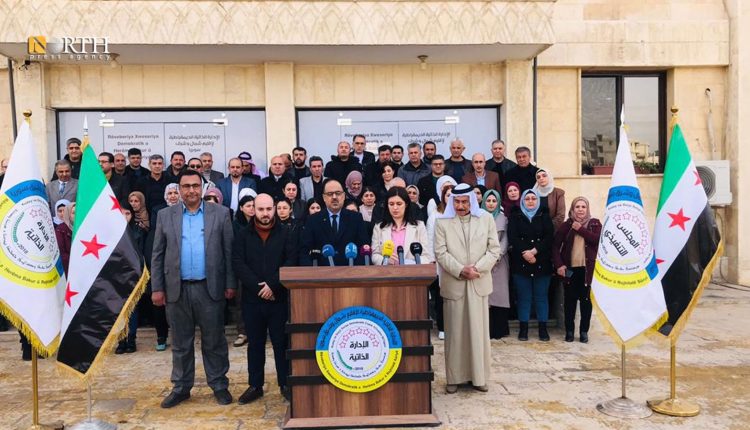Kurdish-led Autonomous Administration Rejects Syrian National Dialogue Conference Outcomes
By Kardo Roj
QAMISHLI, Syria (North Press) – The Autonomous Administration of North and East Syria (AANES) rejected the outcomes of the Syrian National Dialogue Conference on Tuesday, stating that the event “does not represent the Syrian people” and expressing strong reservations over both its format and substance.
In an official statement, AANES emphasized that it was excluded from the conference and, therefore, would not recognize or participate in the implementation of its decisions. “As part of Syria, we were not represented in this dialogue. We object to the conference in both form and content and will not be part of its outcomes,” the statement read.
The Syrian National Dialogue Conference, which concluded earlier today, presented a final statement that included key resolutions such as the formation of a constitutional committee to draft a permanent constitution. While organizers described the conference as a crucial step toward political stability, AANES dismissed the process as unrepresentative and exclusionary.
The statement from AANES acknowledged that the Syrian people have long sought a national dialogue to shape the country’s future, particularly after the fall of the previous regime. However, it criticized the Syrian interim government for failing to ensure a truly inclusive and participatory process.
“These steps taken by the interim administration in Syria regarding dialogue and partnership have been deeply disappointing,” AANES stated.
AANES pointed out that the preparatory committee for the conference did not reflect the diverse components of Syrian society. It also accused organizers of failing to foster genuine dialogue or bridge political divides.
“The individuals participating in the conference are not the true representatives of the Syrian people,” the statement read, adding that the process amounted to “exclusion and marginalization” of key political and social actors.
By sidelining the Autonomous Administration and other major political groups, AANES argued that the conference failed to achieve its primary goal of creating a broad, legitimate framework for Syria’s future governance.
At the conclusion of its statement, AANES reiterated its call for a truly inclusive national dialogue that represents all Syrians without exclusion or marginalization.
It urged for a new conference that would incorporate all political factions and ethnic communities, emphasizing the need for a democratic and participatory approach to Syria’s future governance.
The rejection by AANES highlights the ongoing political divisions in Syria and raises questions about the viability of the conference’s decisions, particularly in regions where the administration holds significant influence.

